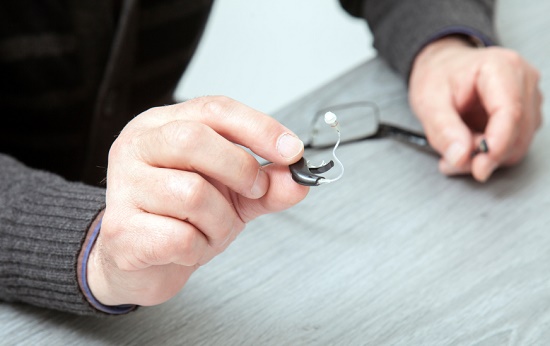
Murphy’s Law informs us that “if anything can go wrong, it will.” A better variant might be that “things will go wrong in any given situation, if you give them a chance.”
That’s the reason we change the oil in our cars, replace the filters, and rotate the tires. We’re attempting to protect our investment and stretch out its life.
You should consider hearing aids in the same way. If you give things an opportunity to go wrong, they will; but if you’re proactive in your maintenance, your hearing aids can endure and function properly for many years.
So what are the things that can go wrong? Here are the three principal threats to your hearing aids and what you can do to defend against them.
1. Physical breakdown
Opponent # 1 is physical damage. Hearing aids consist of fragile electronics that are prone to damage from shock. To protect against this, be sure you store your hearing aids in their storage cases whenever you’re not using them.
A good guideline is that your hearing aids should be either in your ears or in the storage case at all times. Leaving your hearing aids exposed on any surface is just inviting Murphy’s Law to come and bump them off. Likewise, when you’re putting in and removing your hearing aids, it’s best to do this over a soft surface in the event they fall.
In addition, take the time to check and replace the batteries often. You’re not doing the electronics any favors by having the hearing aids function on low battery power.
2. Moisture
Electronic devices and water do not mix, which anyone who’s dropped a mobile phone in the kitchen sink knows all too well. Once immersed, there’s very little that can be done. But it requires much less than total submersion in water to ruin your hearing aids.
Water, in the form of mist, can still work its way into the hearing aids and start causing chaos. Consequently, you should avoid using hairspray, bug spray, or any other sprays while wearing your hearing aids. Additionally, keep in mind that radical changes in temperature can create condensation, for example going from a climate-controlled room to the outdoors. If this happens, ensure that you dry off any wetness that develops.
We also highly recommend not keeping your hearing aids in the bathroom, as the condensation can generate issues. This is yet another reason that your bedside table drawer is probably the ideal spot to keep your hearing aids when they aren’t being used.
3. Earwax and dirt
Even if you’ve protected your hearing aids against physical destruction and water with adequate storage and the avoidance of moisture, you’ll still need to protect against adversary # 3: dirt and grime.
Earwax, dirt, and debris can build up on the hearing aids, clogging the speakers, ports, and other components. To guard against this, 1) sustain adequate ear hygiene, and 2) clean and sanitize your hearing aids daily.
In terms of cleaning and sanitizing your hearing aids, make sure to use only the tools supplied by your hearing professional. Your hearing professional can provide cleaning kits and guidance specifically for your type of hearing aids.
Finally, consider purchasing a hearing aid sanitizer. Sanitizers use ultraviolet light to comprehensively kill dangerous pathogens, all while supplying a safe place for storage.
